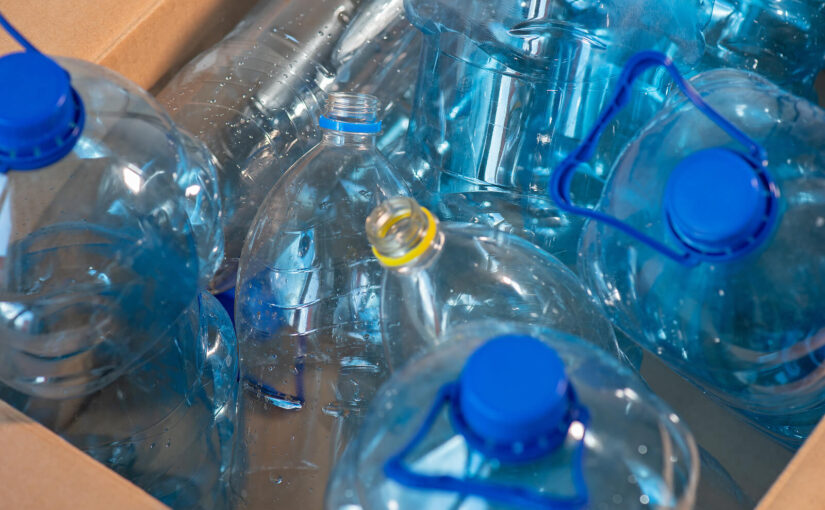Plastic pollution has been a growing concern in recent years, especially when it is discarded in the environment instead of being recycled in the correct way.
We can all do our bit to avoid plastic packaging, recycle where possible, and focus on reusable rather than single-use plastics.
In this article we’ll look at some of the most pressing issues in present-day plastic pollution, and what services are widely available to reduce plastic pollution through relatively minor everyday lifestyle changes.
Plastic pollution in the home
Reducing plastic consumption starts at home. A huge amount of household waste contains plastic, from food containers to drinks bottles, children’s toys and plastic packaging.
To really tackle this, you need to stay aware of it at all times. Try to buy more loose fruit and vegetables, and invest in a few reusable grocery bags – you can now find these in the fruit and veg section of the big supermarkets for just a few pence.
Some independent grocery stores specialise in packaging-free foods, cosmetics and other everyday items, and you might even save money by buying your ingredients in this way. Market stalls are also a good place to get foods without any plastic packaging.
Home cooking is a naturally good way to reduce plastic packaging waste. The black trays used on supermarket ready meals use low-grade mixed plastic and often cannot be recycled economically – even if you put them in a recycling bin.
Recycling plastic in Leeds
If you can’t avoid plastic packaging and other waste, you can check our guide to recycling plastic in Leeds, which lists what can and can’t go in your green recycling bin.
In particular, you can recycle plastic types 1, 2 and 4, along with plastic food containers, margarine tubs, yoghurt pots, see-through milk bottles, drinks bottles, plastic bags and Tetra Pak cartons.
Specific guidelines change from time to time, so it’s a good idea to check what Leeds City Council allow in plastic recycling, so you’re not sending potentially recyclable plastic waste to landfill sites.
Where can I recycle plastic in Leeds?
If you have plastics that can’t go in your green bin, try to think of ways you can reuse them directly in the first instance – for instance, rinsed yoghurt pots can make excellent plant pots for your home and garden.
Supermarkets often have a recycling station, and you might find that this can accept some forms of plastic that aren’t allowed in your green bin, so it’s worth checking.
Remember if you’re disposing of old children’s toys and they use batteries, you should remove the batteries and recycle those separately – one of the easiest places is at the supermarket checkout, where you’ll often find a bucket for old batteries.
How is plastic recycled?
Recycling plastic is a well-honed process:
- Plastics are sorted by polymer type (the number you’ll find in the recycling logo on plastic packaging).
- This is then shredded and washed to create a material that can be worked into a new form.
- Plastic shred is sometimes melted and formed into pellets, which can be used as a raw material in manufacture.
Some types of plastic are less economical than others to recycle, but plastic bottles are usually made of PET or HDPE, both of which can be easily recycled and made into something new, without prohibitive cost.
Plastic bottles and the UK Plastics Pact
We’re now just five years from the original deadline of the UK Plastics Pact. You can read more about the pact and about plastic bottle recycling here.
It’s a commitment led by Wrap and joined by more than 40 of the UK’s biggest household brands, with an aim to eliminate single-use plastic by 2025, as well as to make 100% of plastic packaging either recyclable, reusable or compostable.
If the big brands are able to come close to these targets, it should mean a lot more of our household waste from food, drinks and toiletries can be recycled more easily.
However, progress on those targets may be impacted by the Coronavirus pandemic, which has seen economies around the world grind to a halt during 2020.
A new wave of COVID-19 plastic pollution
As the world went into lockdown at the start of the COVID-19 pandemic, hopes were high for the environment, with reduced human activity leading to a drop in carbon emissions and littering.
It didn’t take long for human nature to take over once again. No sooner were people out of their homes than the COVID-19 plastic pollution started to accumulate.
Non-profit environmental organisations like Operation Mer Propre in France soon reported finding empty plastic bottles of hand sanitiser on the seabed and discarded single-use face masks floating like jellyfish in the Mediterranean.
As we continue to live with the new Coronavirus, we can all play our part by making sure we avoid plastic bottles where possible, recycle those we cannot avoid buying, and invest in reusable face masks with paper-based filters, rather than single-use plastics.
The only way is up
Most of us are now aware of the need to reduce plastic pollution, both by using less plastic, and by recycling the plastic waste we produce.
But there’s more to be done. In recent years the UK has recycled only a single-digit percentage of its plastic waste, while exporting much of the rest for recycling overseas.
If we can increase domestic recycling, the Green Alliance estimates we could meet over 70% of the UK’s demand for plastics using recycled plastic – and that could rise even higher if we can cut the amount of plastic we use overall.
Doing this will be a team effort, and although some people will continue to litter, that does not erase the positive contributions made by more eco-conscious Britons.
By leading the change, the environmentally aware among us set an example for others to follow – and, as littering and plastic pollution continue to become socially unacceptable, we will eventually get there together.
